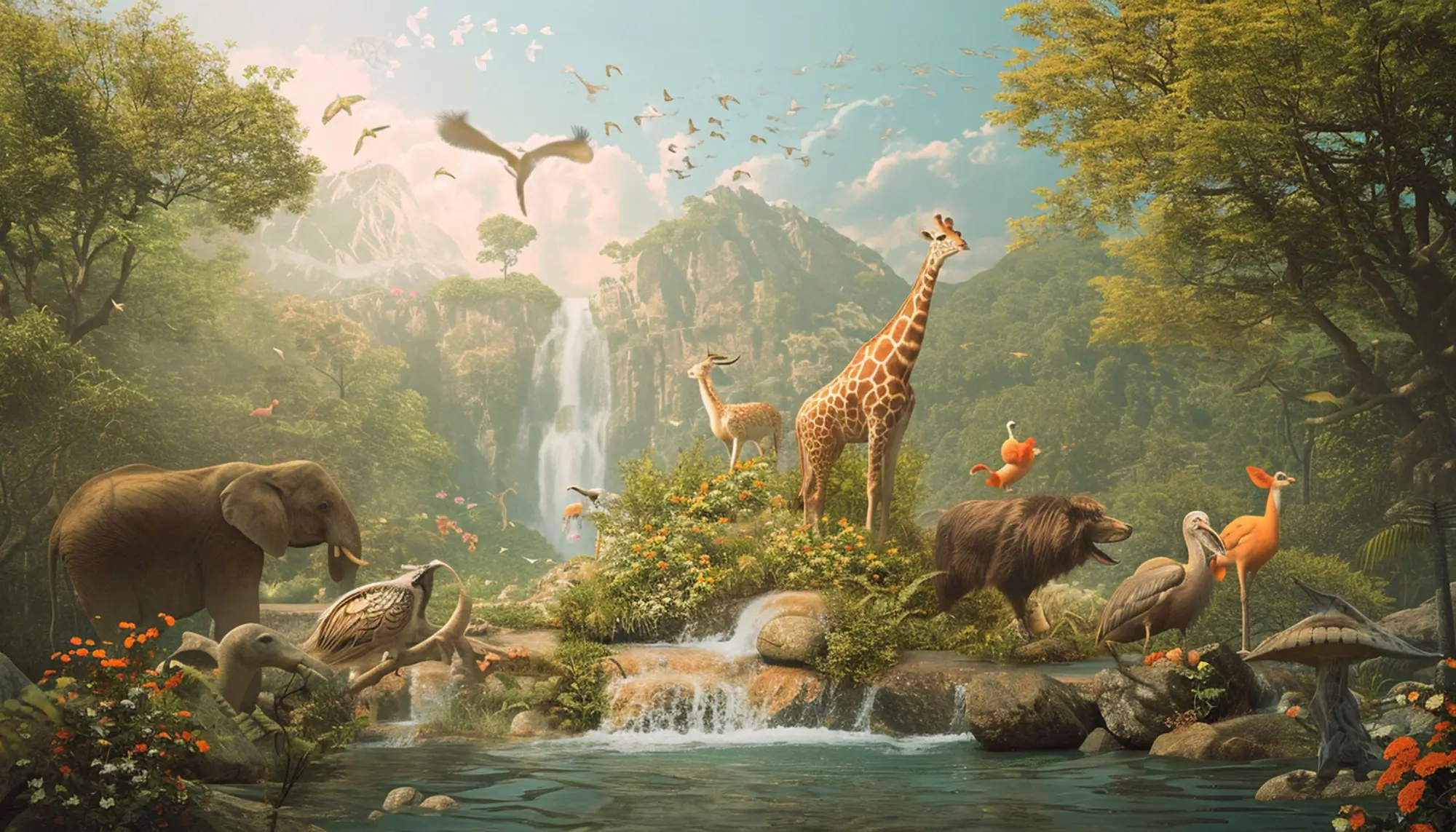Genesis 1 Isn’t Just a Creation Story
It’s a Kingdom Strategy Disguised as a Creation Story
Key Verse
In the beginning God created the heavens and the earth (Genesis 1:1, KJV)
Genesis chapter 1 is the first chapter in the Bible, and it introduces us to God, the Creator of the heavens and the earth. Over six days, He spoke the world into being: light, firmament (defined as an expanse, commonly thought to be the sky), dry land, sun, moon, stars, sea creatures, birds, land animals, and finally, mankind. It sets the scene for the beginning of our story, revealing God’s original purpose for us. And at the end of the chapter, “God saw every thing that He had made, and, behold, it was very good.” (Genesis 1:31, KJV)
In this study, we’ll explore what Genesis 1 teaches us about God, ourselves, and our purpose. Genesis 1 isn’t merely a story of beginnings; it’s a strategic unveiling of God’s plan to establish His kingdom - a kingdom built on order, authority, and a purposeful humanity designed to steward and lead.
God Revealed in Creation
The word for God in Hebrew, Elohim (אֱלהִים), is plural, which hints at the Trinity, an idea further revealed in the New Testament. The Trinity means that while God is one being, He exists as three distinct persons, each with unique roles: God the Father, God the Son (Jesus), and the Holy Spirit.
In Genesis 1, God the Father speaks everything into being. The Gospel of John helps us understand how:
“In the beginning was the Word, and the Word was with God, and the Word was God. The same was in the beginning with God. All things were made by him; and without him was not any thing made that was made” (John 1:1-3, KJV).
John goes on to clarify the identity of the Word:
“And the Word was made flesh, and dwelt among us” (John 1:14, KJV).
The Word (Logos, λόγος in Greek) refers to Jesus, who was present at the beginning and through whom everything was created.
The Holy Spirit, the third person of the Trinity, is also present in Genesis 1. Described as the Spirit of God (Ruach, רוּחַ in Hebrew), He is introduced in Genesis 1:2, KJV:
“And the Spirit of God moved upon the face of the waters.”
The Holy Spirit can also be understood as the breath or active presence of God moving over creation.
Our Identity: Made in God’s Image
When God created man, He didn’t follow the same process He used to create other living creatures:
“Let the waters bring forth…” (Genesis 1:20, KJV) “Let the earth bring forth…” (Genesis 1:24, KJV)
Instead, He said:
“Let Us make man in Our image, after Our likeness” (Genesis 1:26, KJV).
This shift in language reveals a deeper level of intentionality. We were made to reflect God’s nature. This includes our capacity for reason, relationship, moral judgment, and creativity. We are wired for community, collaboration, and connection with God and with one another, because we are made in the image of a relational God.
God’s Purpose and Intentional Design
When God first created the earth, it was “without form, and void; and darkness was upon the face of the deep” (Genesis 1:2, KJV). Day by day, God shaped it with intention. Each act of creation built upon the previous one, each with a specific purpose.
We are meant to reflect that same intentionality. God brings order, and as His image-bearers, we are called to do the same. We are not made for chaos, we are made to build, steward, and reflect God’s intentionality in how we live.
God’s Eternal Nature and Sovereignty
Before Genesis 1, time as we know it did not exist, because God exists outside of time, in eternity.
As Psalms 90:2, KJV declares:
“Before the mountains were brought forth, or ever thou hadst formed the earth and the world, even from everlasting to everlasting, thou art God.”
Likewise, in Revelation 1:8, KJV, God says:
“I am Alpha and Omega, the beginning and the ending.”
“In the beginning” marks not just the start of creation, but the beginning of time itself. These verses remind us that God is eternal, sovereign, and not bound by the limits of time or space.
Our Purpose: Dominion with Responsibility
God gave us a measure of rulership when He gave man a clear purpose in Genesis 1:28, KJV:
“Be fruitful, and multiply, and replenish the earth, and subdue it: and have dominion over the fish of the sea, and over the fowl of the air, and over every living thing that moveth upon the earth.”
Let’s break that down:
- Be fruitful: Just as fruit contains seed to produce more of its kind (Genesis 1:11, KJV), we carry the ability to reproduce and create life. That’s part of our design.
- Multiply: This means to increase, not just a little, but exponentially. God didn’t just want a few people scattered across the earth; He wanted the earth filled with families walking in relationship with Him.
- Replenish the earth: In other words, fill it. Populate it. Expand. Spread out. Take up the space He gave us.
- Subdue it: This means to bring it under control or manage it. God gave us the responsibility to look after the earth - not to exploit it, but to steward it. We are to maintain the beauty and balance He created.
- Have dominion: To rule or govern. But notice God says to subdue the earth, but to rule over the animals. He does not say to subdue the animals. This shows us that we are not here to dominate or abuse creation, we are here to lead with care, to watch over every living thing, and to ensure creation thrives as God intended.
God’s Kingdom on Earth
Genesis 1 doesn’t just explain how the world began, it reveals why we exist. We are made in God’s image, given a purpose, and called to rule with care, create with intention, and reflect His glory. This is the foundation of His kingdom on earth.
Reflection
As you reflect on Genesis 1, ask yourself:
Am I living in a way that reflects the image of God?
Am I building, stewarding, and multiplying what He has entrusted to me?

